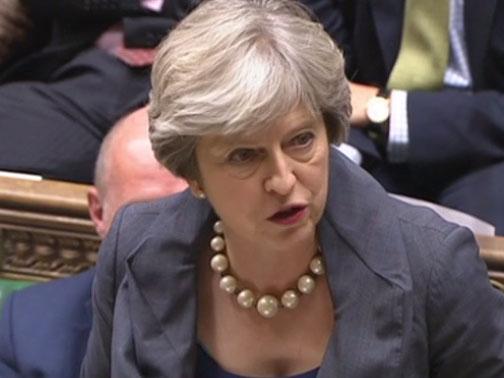EU tells Britain it will make no concessions to break 'disturbing deadlock' in Brexit negotiations
No serious negotiations took place on the question of the divorce bill this week
Your support helps us to tell the story
From reproductive rights to climate change to Big Tech, The Independent is on the ground when the story is developing. Whether it's investigating the financials of Elon Musk's pro-Trump PAC or producing our latest documentary, 'The A Word', which shines a light on the American women fighting for reproductive rights, we know how important it is to parse out the facts from the messaging.
At such a critical moment in US history, we need reporters on the ground. Your donation allows us to keep sending journalists to speak to both sides of the story.
The Independent is trusted by Americans across the entire political spectrum. And unlike many other quality news outlets, we choose not to lock Americans out of our reporting and analysis with paywalls. We believe quality journalism should be available to everyone, paid for by those who can afford it.
Your support makes all the difference.Brexit negotiations have reached a "disturbing deadlock" over the question of Britain's divorce bill, the European Commission's chief negotiator has said.
Michel Barnier said there would be no "concessions" in talks, which he said had completely ground to a halt on the question of post-Brexit payments.
Speaking to journalists at the end of the fifth round of talks on Brussels Mr Barnier said the lack of progress on the divorce bill has become so acute that officials did not even sit down to full discussions about it during this week's round.
Both sides have also given up on the UK making "sufficient progress" to move to trade talks by the European Council summit in October, with Mr Barnier suggesting the milestone could be reached by December with constructive effort on both sides.
"In her Florence speech Theresa May explained that the UK would honour the commitments entered into as a member of the union. That is an important commitment. However, this week the UK repeated that it was still not ready to spell out that commitment," he said.
"There have been, therefore, no negotiations on this subject. We confined ourselves to technical discussions. Useful discussions, but technical discussions. We have reached a deadlock."
This situation was “disturbing for taxpayers” and project managers across the continent, he said.
The chief negotiator added: "We are not asking the British to make concessions. The agreement we are working on will not be built on concessions. There’s no question of making concessions on citizens' rights, there’s no question of making concessions on the peace process in Ireland, and as regards to the financial settlement, there’s no question of making concessions on thousands of projects throughout Europe."
On the British side, Brexit Secretary David Davis struck a more optimistic tone – but argued that the European Council needed to broaden Mr Barnier's mandate – set by member states – to help make progress.
British officials have previously characterised the mandate as overly restrictive and blamed it for slower-than-expected progress in talks. Some eurosceptic MPs have said they hope Angela Merkel's re-election in Germany will lead to pressure to change the mandate at member-state level, but there is as yet no evidence that this idea is grounded in reality.
"The next step in this progress is the European Council in October and we would like them to give Michel the means to broaden the mandate. I think it’s in the interests of the EU and the UK that they do," he said.

The UK wants to open talks on a Brexit transition period, but Mr Barnier says his mandate means he cannot do so until the issues of Northern Ireland, citizens' rights, and the divorce bill have been settled.
Mr Davis also confirmed that the UK was "planning for all outcomes" – including a no-deal scenario, said that it was “important to recognise the significant progress we’ve made since June”.
The lack of progress comes days after European Commission blamed the UK for a hole on the talks schedule on Wednesday. Britain's negotiating team strenuously denies it was responsible for the gap in proceedings and says the break was mutually agreed by both sides.
European Council president Donald Tusk said yesterday that if negotiations continued at the current “slow” rate then both sides would have to “think about where we are heading”.
This week's fifth round was the final scheduled round of Article 50 talks; more rounds are expected to be scheduled in due course.

Join our commenting forum
Join thought-provoking conversations, follow other Independent readers and see their replies
Comments